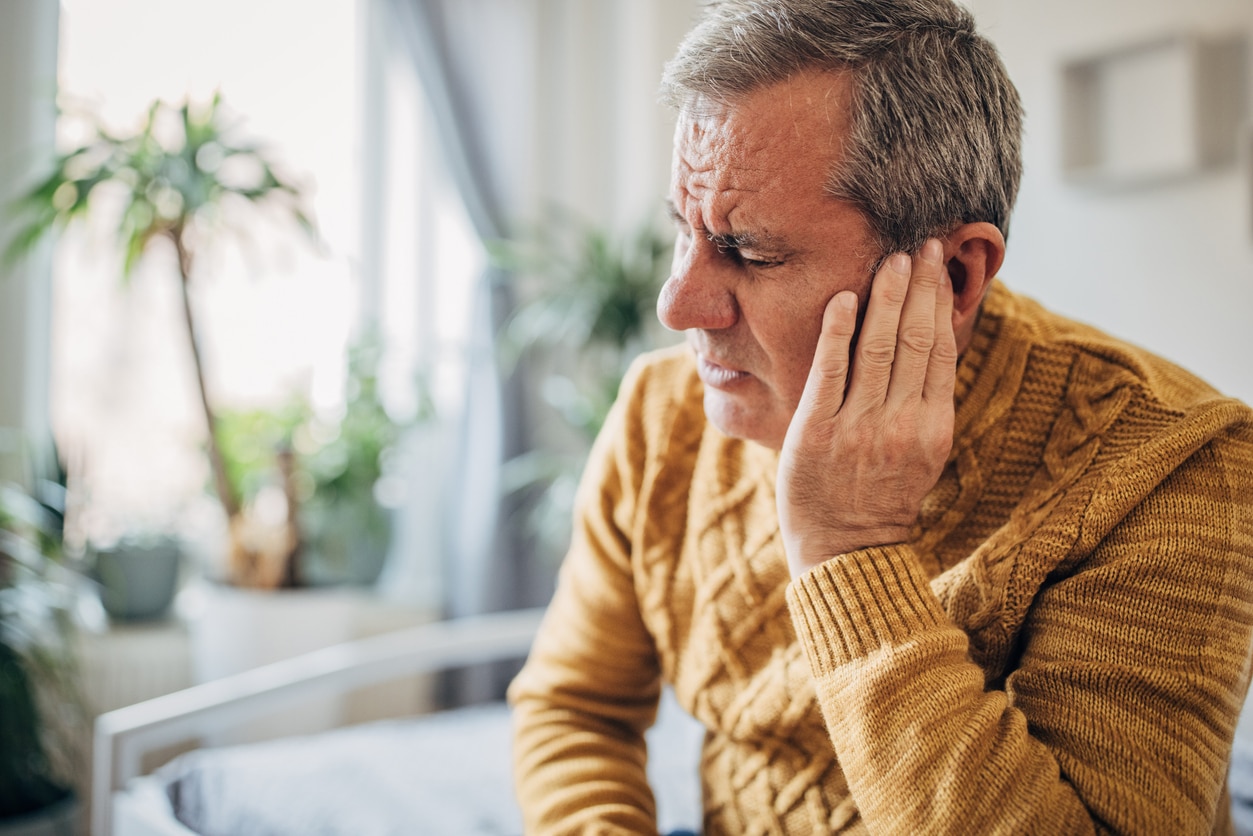Nearly one in three U.S. adults and over one in four U.S. children reported a seasonal allergy, food allergy or eczema in 2021. Allergies most commonly cause sneezing, inflammation, headache, coughing, runny or stuffy nose and hives. Although not as common a symptom, allergies may result in ear pain.
Let’s look at why allergies may result in ear pain and what you can do to manage them.
Swelling From Allergies

Your ears contain an opening called the Eustachian tube that connects the middle ear with the nasal-sinus cavity. The Eustachian tube balances pressure in and drains fluid from the middle ear. When the Eustachian tube becomes inflamed or swollen from allergies, fluid may build up in the middle ear, leading to a blocked feeling or an ear infection.
An ear infection presents with symptoms including:
- Ear pain
- Fluid drainage from the ear
- Muffled hearing
- Fever
Ear infections in children may also be accompanied by fussiness, lack of appetite and crying.
If an allergic reaction is causing your ear infection, managing your allergies is the best way to prevent the infection and accompanying ear pain.
Tips for Managing Allergies
Managing and preventing allergic reactions can reduce the inflammation and swelling in the Eustachian tube. A couple of methods for managing allergies include:
- Avoidance. You may not always be able to avoid allergens, but you can minimize your exposure. Start by identifying your allergic triggers through a scratch or skin prick test. Once you know what allergens you are sensitive to, minimize your contact. For instance, if you’re allergic to pollen, avoid Webb Bridge Park during high pollen count days.
- Medication. Allergy medications include antihistamines, decongestants, corticosteroids, leukotriene inhibitors and more. Medication can help reduce or block symptoms to prevent ear pain from manifesting.
- Immunotherapy. Allergy immunotherapy works by introducing small doses of an allergen into the body through shots or drops, increasing the dosage over time to decrease the body’s sensitivity to the allergen.
- Warm compresses. Place a warm compress over your forehead and sinuses to reduce inflammation and swelling in the sinuses.
- Nasal irrigation. Try pouring a saline solution through the nostrils to clear out the congestion and help mitigate allergy symptoms.
For more information on preventing allergy-induced ear pain, contact ENT of Georgia North today to make an appointment with one of our specialists.